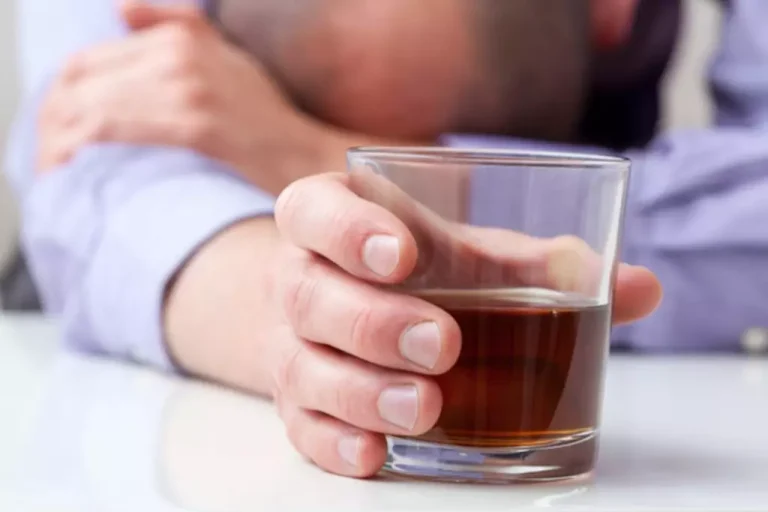
People and their families should discuss these options with their counselors while still in rehab. Ongoing participation in a recovery program, such as a12-step programorSMART Recovery, is crucial for ongoing recovery. Rehab programs that introduce people to these aftercare programs are how long is drug rehab more effective at ensuring participation in ongoing recovery activities after discharge. The addicted mind often begins to believe – especially after a period of time in abstinence – that it is OK to try drinking or using substances again. There are often recovery groups that offer safe spaces for people of certain genders, ages, and cultural backgrounds.

Benefits of Outpatient Treatment
This is especially true for people who live in marijuana addiction areas where treatment centers and providers are scarce. Potential drawbacks might include challenges in mastering the new technology and the possibility of technology failures. But telehealth for all kinds of medical and mental and behavioral health services appears to be effective and here to stay. A partial hospitalization program (PHP) or day program provides drug rehab treatment for 20 or more hours per week through outpatient services that take place for 4 to 6 hours a day on 3 or more days a week.
How to Find a Drug or Alcohol Rehab Program

Family counseling is a safe space for everyone to share their experiences and for family members to learn how they may have enabled or contributed to your addiction. Acknowledging and working through these complicated and sometimes painful emotions can promote healing and continued growth. An addiction specialist will customize the right types of therapy for your unique needs. Therapy can come in many forms, but research suggests that behavioral therapies are most effective in treating addictions. Two of the most common behavioral therapies used in this setting are cognitive behavioral therapy and motivational interviewing.
Types of Rehab for Drug and Alcohol Addiction

Long-term residential drug rehab programs are ideal for people in need of intensive, monitored, 24-hour treatment for substance abuse. Dual diagnosis care, medical detox, and behavioral therapy are often provided in long-term rehab programs. The American Society of Addiction Medicine (ASAM) created a system to give providers, as well as individuals seeking addiction treatment, a simple way to determine the intensity of treatment that is needed. ASAMs system involves five levels of care for drug rehab programs which shape the recommended treatment protocols. It’s based on an assessment of the patient’s medical, psychological, and social needs. The cost of various rehab programs varies, ranging from free government-funded or community-funded programs toluxury facilities.
- The assessment process requires gaining trust and breaking through that secretive nature.
- Your rehab program will set you up with an aftercare plan to help you stay sober and it’s in your best interest to stick with it.
- Depending on your situation, you will be given a schedule and treatment plan.
- Renaissance has a robust aftercare and alumni program to support long-term sobriety.
- The U.S. National Institute on Drug Abusestates that 40% to 60%of people who complete treatment relapse.
It’s important to determine in advance if insurance can help you cover the expenses. There are a few different ways of paying for rehab, and our team at AAC can help you determine the best option for you. American Addiction Centers (AAC) is committed to delivering original, truthful, accurate, unbiased, and medically current information. We strive to create content that is clear, concise, and easy to understand.
Inpatient/Residential Addiction Treatment
If you don’t have private insurance, you may qualify for public insurance programs, such as Medicaid or Medicare. In addition, plans offered through the Affordable Care Act (“Obamacare”) are required to cover substance use and mental health services to the same extent that they cover medical needs. Many inpatient rehab programs also include holistic options like yoga, meditation, art therapy, and mindfulness practices to support overall well-being and build healthy coping skills. Unlike outpatient programs where you stay at home and attend sessions, inpatient rehab means living at the facility during your recovery.
- For many people with addictions, fear of withdrawal is a major barrier to escaping their addiction, and that fear keeps them from even trying.
- Sometimes medication assisted treatment (MAT) that uses a special group of FDA approved drugs is provided.
- Chapters offers a variety of treatment options, including 12-step and non-12-step programs, luxury programs, inpatient therapy, holistic treatment, and dual diagnosis programs.
- So are doctors; about eight out of 10 times they are asked about Zepbound or Wegovy, they write a prescription for the patient.
- The U.S. Substance Abuse and Mental Health Services Administration suggests that patients should receive the least restrictive care possible.
- Two of the most common behavioral therapies used in this setting are cognitive behavioral therapy and motivational interviewing.
- The following treatment facilities were selected for their accreditations, licensure, client testimonials, high Google reviews, and other marks of quality.
- Many states compile their own listings of certified programs as well as hotlines.
- People and their families should discuss these options with their counselors while still in rehab.
These are often organized by former addicts to =https://ecosoberhouse.com/ help others on their recovery journeys and provide a support network of sober-minded peers. The most widely recognized of these are the 12-Step programs Alcoholics Anonymous (AA) and Narcotics Anonymous (NA). American Addiction Centers (AAC) operates multiple rehab facilities across the United States, each providing comprehensive and individualized evidence-based treatment.
You’ll step away from the everyday stresses, triggers, and temptations that could interfere with your recovery. Instead, you’ll be supported by medical professionals, therapists, and peers who get what you’re going through and are committed to helping you achieve lasting sobriety. AddictionResource.net, and its parent company Recovery Guide LLC, is not a provider of substance use disorder treatment services and receives compensation from Treatment X LLC in the form of paid advertising. The helpline at AddictionResource.net is available 24/7 to discuss the treatment needs of yourself or a loved one. This helpline is answered by Treatment X LLC, an addiction treatment provider with treatment facilities in Ohio, Pennsylvania, and California. This drug and alcohol rehab center is accredited by the Commission on Accreditation of Rehabilitation Facilities (CARF) and features positive client testimonials.